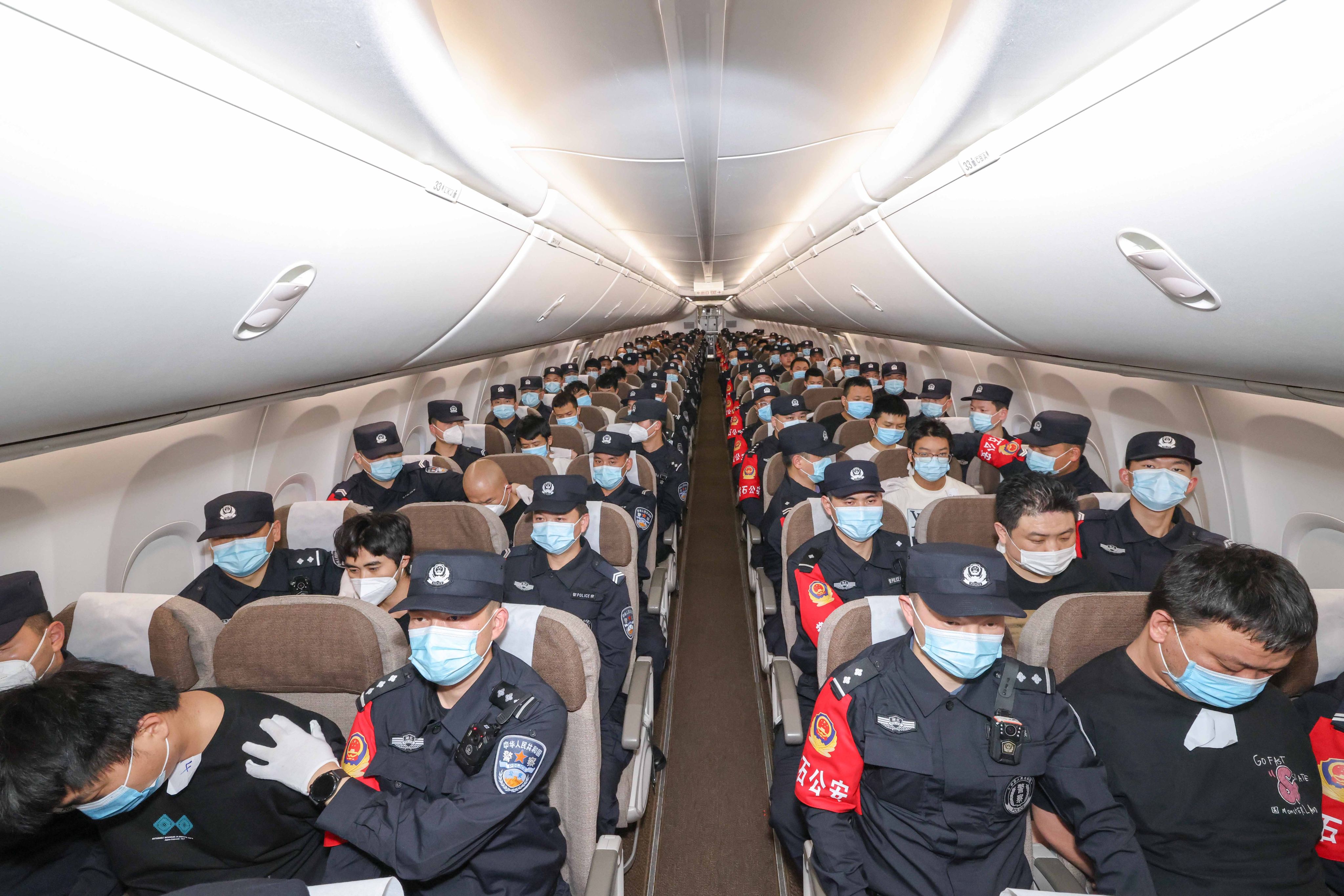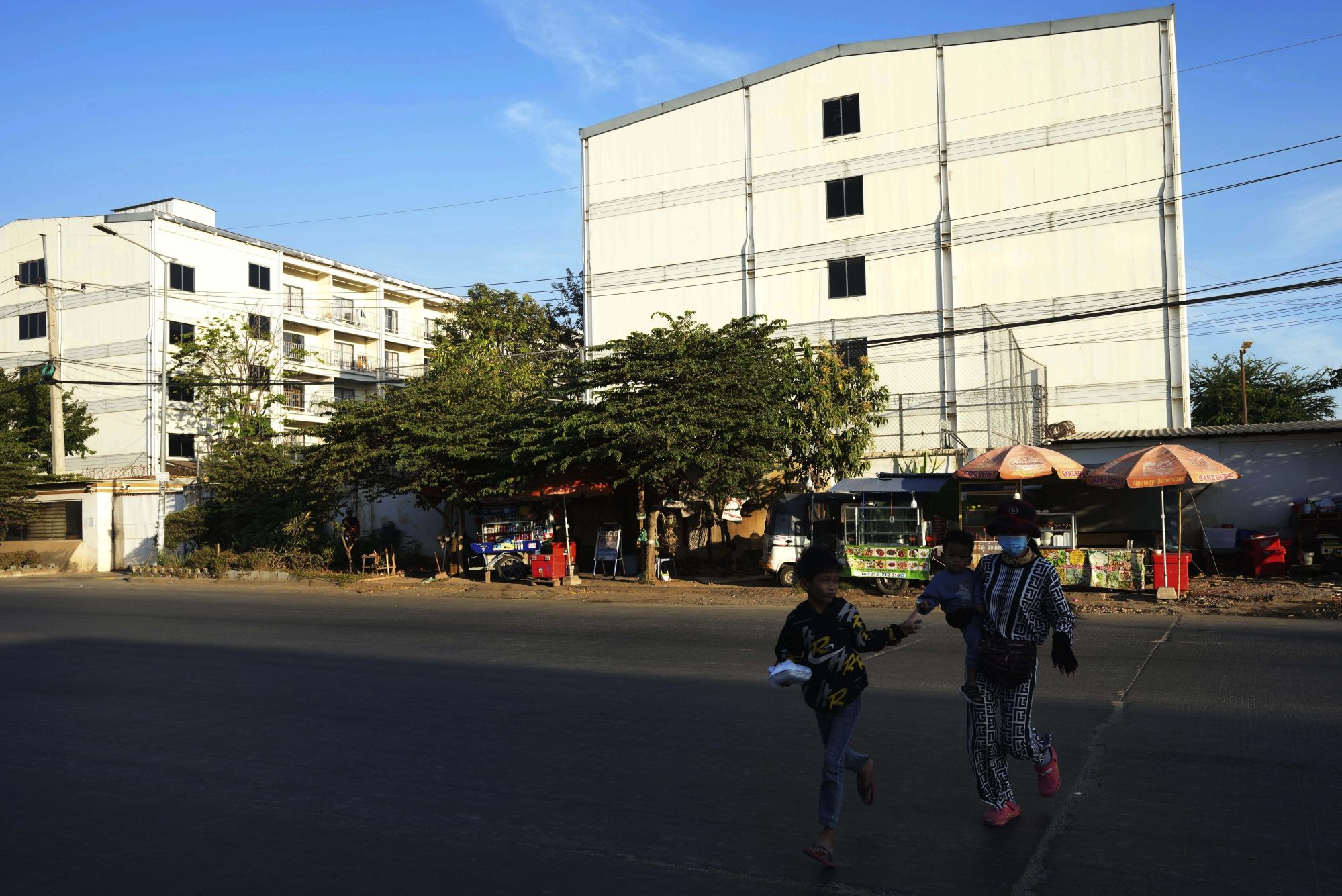Cambodia is home to world’s most powerful criminal network: report
The network’s illegal activities threaten global economic and political stability, says Jacob Sims, a transnational crime expert

A newly released report has named senior Cambodian political figures as central players in what it describes as possibly the world’s most powerful criminal network – a multibillion-dollar, Southeast Asia-based cybercrime industry that experts warn may soon become “too big to fail”.
Written by transnational crime and regional security specialist Jacob Sims, the report says Cambodia is becoming the centre of an exploding global scam economy driven primarily by Chinese organised crime. It warns that the scale of illegal activities threatens global economic and political stability, and is thriving through state-sanctioned corruption.
“While Myanmar and Laos boast towering scam economies, one country stands above its peers in terms of likely scale and durability: Cambodia,” the report concluded. “Cambodia is likely the absolute global epicentre of next-gen transnational fraud in 2025 and is certainly the country most primed for explosive growth going forward.”
Published by the US-funded Humanity Research Consultancy, Sims’ report follows a chilling assessment by the United Nations Office on Drugs and Crime (UNODC), which last month expressed alarm at the exponential growth of Southeast Asia-based transnational crime with its reach having extended to the Pacific, South Asia, the Middle East, Africa and South America.
Southeast Asian-based crime syndicates have quickly evolved from synthetic drug production to unregulated casinos and online gambling, and are now world leaders in “industrial scale” cyber-enabled fraud and scams enabled by networks of human traffickers, money launderers, technology experts, and data brokers, according to the UNODC.
It added the “professionalisation” of recruitment continued to attract countless, often talented but underemployed, young people from more than 60 countries through deceptive job offers, noting some became willing participants in illegal activities but many end up essentially as slaves subject to extortion and ransom demands, and coercion ranging from beatings to torture and even murder.
The UNODC said these syndicates had proven highly mobile and nimble in adapting to gaps in governance, and in integrating massive physical infrastructure with advanced digital technology to create new scamming opportunities. These include unauthorised payment processing systems and cryptocurrency exchanges, and the use of artificial intelligence and machine learning to create “deep fakes” promoting the sale of fraudulent goods and services.
“In the United States alone, authorities reported more than US$5.6 billion in financial losses to cryptocurrency scams in 2023, with an estimated US$4.4 billion attributed to ‘pig butchering’ [online romance scams] most prevalent in Southeast Asia,” the report stated. “The UNODC calculates countries in East and Southeast Asia lost up to US$37 billion to cyber-enabled fraud that year, with much larger losses being reported globally.”
The UN agency added that new illicit online marketplaces native to Southeast Asia had further increased criminal profits, often through associated money laundering services, with billions of dollars integrated into the global financial system.
Sims’ research suggests that cybercrime is now likely the largest economic engine in the Mekong region, generating the equivalent of 40 to 60 per cent of gross domestic product in countries harbouring significant organised crime that is fleecing people from around the world of between US$50 billion and US$75 billion annually.
Other observers say recent coordinated law enforcement has achieved some success in Laos, while crackdowns by Thailand and China on cross-border complicity – and some action by local ethnic armed organisations – have disrupted cybercrime operations in lawless Myanmar.
But they add some of those operations, as well as now banned fraud factories operating through Philippine-based online gaming platforms, have relocated to Cambodia, where the local scam industry already benefits from good physical and telecommunication infrastructure and systemic corruption.
Sims, a visiting fellow at Harvard University’s Asia Centre whose findings were based on extensive desktop research and dozens of interviews with journalists, diplomats, analysts, and victims of people trafficking, said Cambodia’s scam economy boasted a significantly coerced workforce of more than 150,000.
“Scamming has become a profitable domestic industry, likely unparalleled in Cambodia’s history,” he said. “Revenue estimates range from US$12.5 billion to US$19 billion per year, significantly exceeding the garment and textiles, the country’s largest formal economic sector.”

Elite complicity
In a country long mired in corruption and ranking near the bottom of global governance indexes, senior figures from the ruling Cambodian People’s Party (CPP) have for decades been linked to illicit revenue from smuggling, illegal logging, extractive industries and land grabs.
Niel Loughlin, a senior lecturer in politics at City University of London and author of The Politics of Coercion, said the CPP’s consolidation of power over four decades had been underpinned by a patronage system involving the distribution of spoils from a criminalised economy.
“The CPP’s success has come as a result of it distributing resources and economic rents, and its highly effective suppression of dissent,” he said. “This has been controlled by [former long-serving prime minister] Hun Sen, with the money generated buying the loyalty of the state’s security apparatus, which is now an integral part of the party.”
Individuals implicated in past illicit dealings now appear central to Cambodia’s booming scam economy, alongside a new generation of leaders, who are often the sons of long-time CPP elites.
Among them are tycoons such as Try Pheap, who is under US sanctions, and Ly Yong Phat, a CPP senator and close ally of both Hun Sen and his son, current Prime Minister Hun Manet. Ly is linked to cyber fraud compounds and online gambling ventures in Oddar Meanchey and Koh Kong provinces.
Loughlin notes that both men have, until recently, openly declared their scam compound interests online. They are joined by lower-profile Cambodian oligarchs such as CPP Senator Kok An, who owns multiple scam compounds in Poipet and Sihanoukville, and is also a long-term close associate of Hun Sen.
Investigations by multiple agencies and blockchain analysts have meanwhile identified Phnom Penh-headquartered Huione Guarantee, recently rebranded Haowang, as among the world’s largest illicit online marketplaces and a key enabler of cyber fraud in Southeast Asia.
According to the UNODC, the predominantly Chinese language platform has nearly 1 million users, thousands of interconnected vendors, and features a digital forum market, online gambling and related money-laundering services. More than US$24 billion has been traced flowing through its platforms since 2022.

“Research reveals that Hun To, a cousin of Hun Manet, sits on the board of directors at Huione,” Sims said. “Public records also reveal Sar Sokha [a deputy prime minister and Cambodia’s current interior minister who is the son of long-term interior minister Sar Kheng] was a co-investor in the construction of one of the largest and most notorious scam compounds in the country.”
Investigations also reveal a key investor in Sokha’s Jinbei casino is Chen Zhi, the CEO of the Prince Group conglomerate and an alleged Chinese crime figure who is a major patron to the CPP and a cabinet-level adviser to the current and former prime ministers. He has been identified by law enforcement agencies as just one of numerous Chinese cybercriminals driving Cambodia’s scam industry, wielding significant influence in Cambodia’s increasingly criminalised economy.
In response to mounting international concern, Cambodia has launched initiatives and highly publicised policing actions that ostensibly have cracked down on cybercrime. But analysts generally dismiss these as theatre, with the UNODC report noting they have slowed expansion in visible locations, but led to its mushrooming in remote regions. Few observers expect a genuine crackdown any time soon.
Loughlin argues that criminal revenue streams have long been a central feature of Cambodian political culture, but ironically, they might be a stabilising force at a time of political transition and economic uncertainty.
“There are a bunch of long-standing structural problems in Cambodia’s economy that will not easily be resolved. There is an enormous personal debt crisis [among ordinary Cambodians], and uncertainty regarding exports from Trump’s tariff policy,” he said. “There has also been a significant reduction in legitimate Chinese investment. These will be very worrying to the CPP because they have the capacity to generate significant popular discontent.”